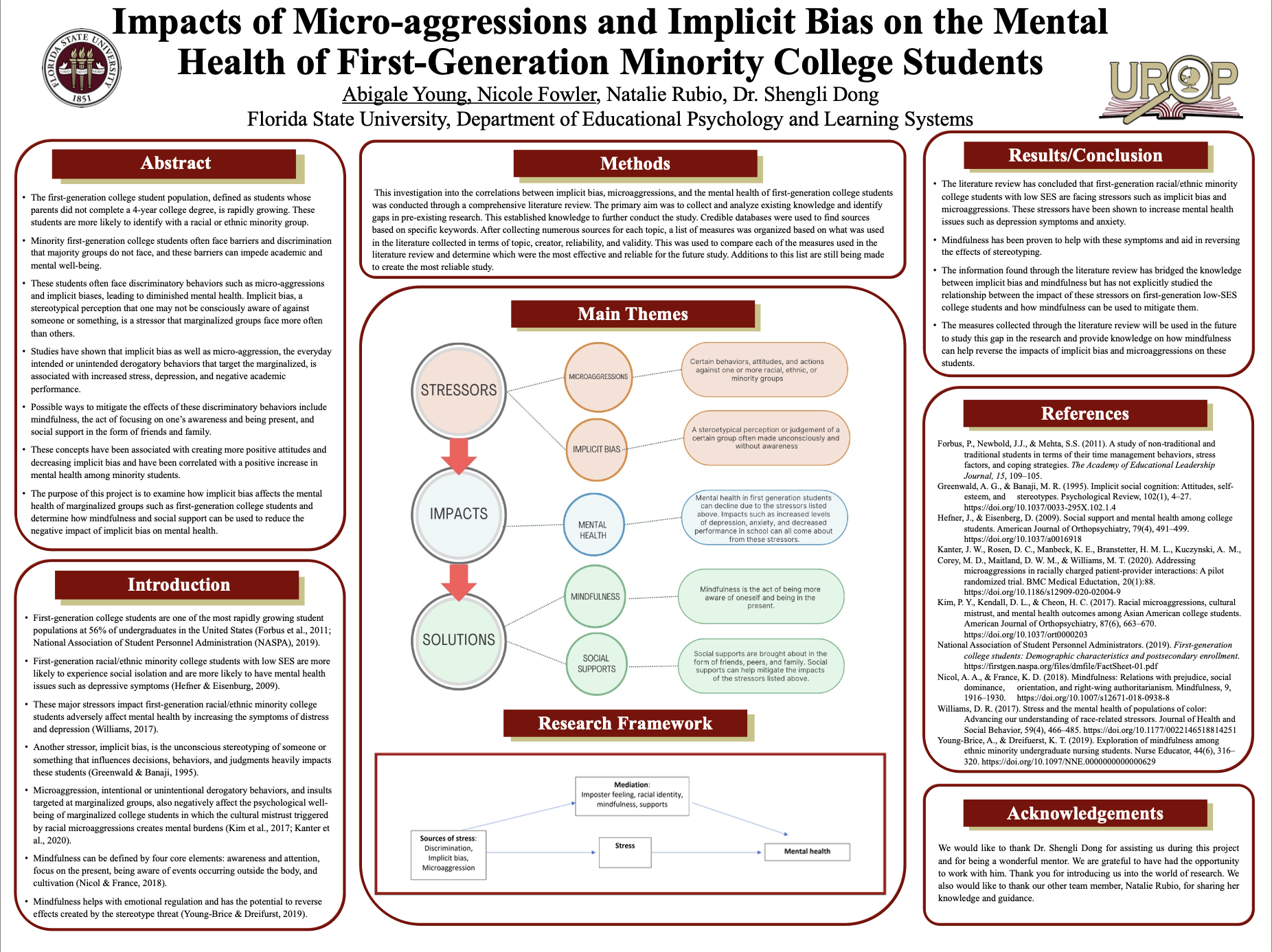Research Symposium
24th annual Undergraduate Research Symposium, April 3, 2024
Nicole Fowler Poster Session 3: 1:30 pm - 2:30 pm/45

BIO
My name is Nicole Fowler and I am a sophomore at Florida State University. I am pursing a career in medicine and research. I am so thankful for the opportunity to be a part of Undergraduate Research Program this year and hope to continue participating in research in the future.
Impacts of Micro-aggressions and Implicit Bias on the Mental Health of First-Generation Minority College Students
Authors: Nicole Fowler, Dr. Shengli DongStudent Major: Biomedical Sciences
Mentor: Dr. Shengli Dong
Mentor's Department: Department of Educational Psychology and Learning Systems Mentor's College: Florida State University Co-Presenters: Abigale Young
Abstract
The first-generation college student population, defined as students whose parents did not complete a 4-year college degree, is rapidly growing. These students are more likely to identify with a racial or ethnic minority group and are more commonly raised in families of low socioeconomic status (SES). These students also often face discriminatory behaviors such as microaggressions and implicit biases, which only burden them further, leading to diminished mental health. Implicit bias, a stereotypical perception that one may not be consciously aware of against someone or something, is a stressor that marginalized groups face more often than others. Studies have shown that implicit bias as well as microaggression, the intended or unintended derogatory behaviors that target marginalized groups, is associated with increased stress, depression, and negative academic performance.
Possible ways to mitigate the effects of these discriminatory behaviors include mindfulness, focusing on one’s awareness and being present, and social support. These concepts have been associated with creating more positive attitudes and decreasing implicit bias and have been correlated with a positive increase in mental health among minority students. There are limited studies that evaluate the correlation between mindfulness and the negative mental effects of implicit bias and microaggression among the target population. The purpose of this project is to examine how implicit bias affects the mental health of marginalized groups such as first-generation college students and determine how mindfulness and social support can be used to reduce the negative impact of implicit bias on mental health.
Keywords: Microaggression, implicit bias, first-generation college students

